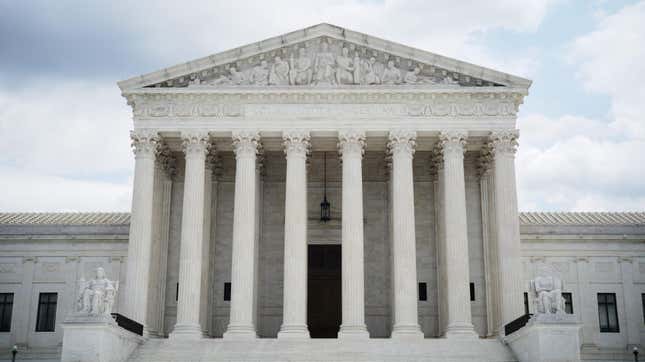We Will Be Living in Trump's America for a Long Time
The Supreme Court's latest decision on voting rights is a grim sign of things to come.
Politics

Trump may have been voted out of office after just one term, but he changed the makeup of the Supreme Court for a generation, and we’re only just beginning to get a sense of the profound damage that lies ahead.
On Thursday, in a 6-3 decision, the court upheld two Arizona voting laws: one that allows provisional ballots cast by a voter in the wrong precinct to be discarded, and another that bans so-called “ballot harvesting,” which places extreme limits on who can legally collect voters’ ballots.
Federal appeals courts had previously struck down the laws, finding that they had disproportional impact on people of color and other marginalized groups—not to mention the fact that there have been no verified incidents of fraud to justify the laws. But the conservative-leaning court considered the effect on marginalized voters to be negligible, insisting that the laws are merely “inconvenient.”
-

-

-

-

-

-

-

-

-

-

-

-

-

-

-

-

-

-

-

-

-

-

-

-

-

-

-

-

-

-

-

-

-

-

-

-

-

-

-

-








































